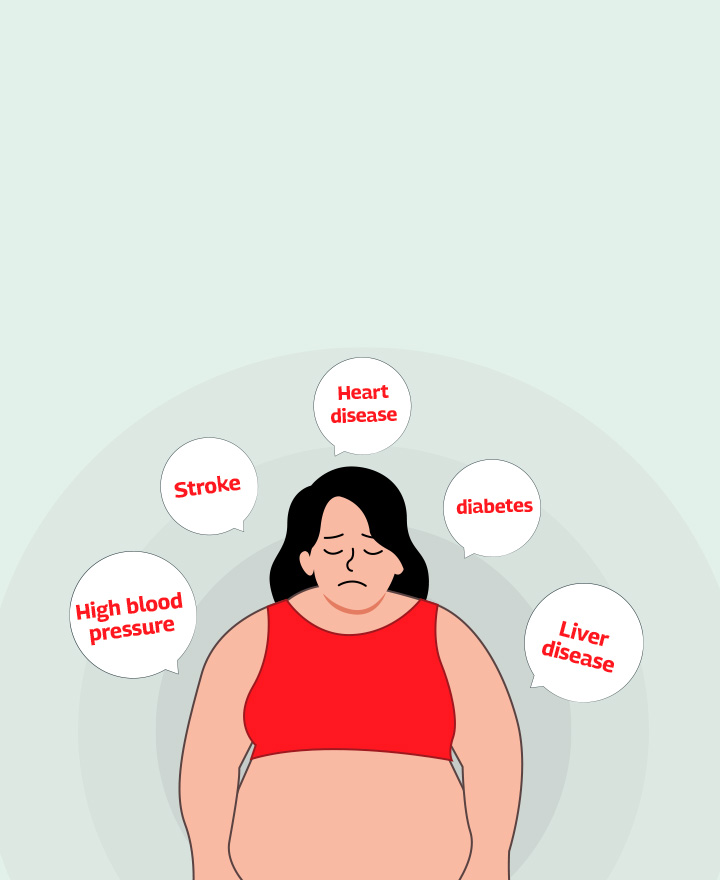

Health Benefits of Apple Cider Vinegar
Apple cider vinegar (ACV) comes with umpteen promises — weight management, better digestion, blood sugar control, and more. Made from a blend of apples, alcohol, and acids, ACV can be a healthy addition to your routine when consumed moderately However, it's always a good idea to talk to your doctor first to make sure it's right for you. Read on to know more about apple cider vinegar benefits and risks involved.
Health Benefits of ACV
Here’s what science suggests —
• Regulates Blood Sugar Levels:
Some studies suggest apple cider vinegar can help regulate blood glucose levels, which is especially beneficial for those with type 2 diabetes.
• Lowers Cholesterol:
ACV may reduce cholesterol, helping to maintain heart health.
• Improves Gut Health:
Thanks to its probiotic content, ACV can support a healthy microbiome, promoting digestion and overall gut health.
• Antioxidant Properties:
The polyphenols in apple cider vinegar act as antioxidants, helping reduce cellular damage caused by free radicals.
• Kills Harmful Bacteria:
ACV’s acetic acid can eliminate harmful bacteria, which is why it's commonly used in food preservation.
Benefits of Drinking Apple Cider Vinegar
Adding apple cider vinegar to your daily routine can bring you the following health benefits —
• Weight Loss Support:
Drinking diluted ACV before meals may enhance feelings of fullness, potentially aiding weight loss.
• Improved Digestion:
ACV can boost the production of stomach acid, helping to digest food better and reduce bloating.
• Reduced Sugar Cravings:
ACV is thought to help control sugar cravings by stabilising blood sugar levels after meals.
Associated Risks
Although ACV can have benefits, there are some potential risks to watch out for, such as —
• Tooth Enamel Erosion:
The high acidity can wear down your enamel, especially if not diluted.
• Throat Irritation:
Drinking it straight can irritate or burn your throat lining.
• Stomach Upset:
Some people may experience nausea or indigestion.
• Medication Interference:
ACV can interact with medications like insulin or diuretics, so check with your doctor before using it regularly.
How To Consume ACV?
If you decide to include apple cider vinegar in your diet, it’s essential to consume it safely.
• Dilute It:
Mix 1 tablespoon of ACV in 8 ounces of water, tea, or juice to minimise the risk of irritation and damage.
• Use It in Cooking:
ACV comes with a tangy flavour and can be added to salad dressings, marinades, and sauces.
• Limit Consumption:
Stick to one serving per day, as excessive use can lead to adverse effects.
Conclusion
Apple cider vinegar does promise health benefits; it aids digestion and helps with weight management. However, many of the claims are often overstated or not fully backed by adequate scientific evidence. While small, diluted amounts of ACV are generally safe for most people, it’s important to be aware of potential risks, such as tooth enamel damage and interactions with medications. If you’re thinking about giving ACV a try, start slow, make sure to dilute it, and always check in with your doctor, especially if you have any existing health conditions.
One of the important components of our overall wellness is also being financially secured. Healthcare emergencies can happen any time, but a good health insurance policy can protect you from such uncertain situations. To know more about Wellness and other health related tips, visit the wellness corner.
Source: mayoclinic.org, webmd.com
Disclaimer: This blog provides general information and discussions about health and related subjects. The information and other content provided in this blog, website or in any linked materials are not intended and should not be considered, or used as a substitute for, medical advice, diagnosis or treatment. Kindly contact your Doctor before starting a new medicine or health regime.
Related Articles
Know the Health Benefits of Organic Foods
Top 6 Benefits of Baobab Fruit and Powder
Gooseberry Health Benefits - Boost Immunity & Wellness
10 Health Benefits of Avocado Oil
Health Benefits of Banana Milkshake
Published on November 6, 2024














 Health Insurance
Health Insurance  Travel Insurance
Travel Insurance  Car Insurance
Car Insurance  Cyber Insurance
Cyber Insurance  Critical Illness Insurance
Critical Illness Insurance
 Pet Insurance
Pet Insurance
 Bike/Two Wheeler Insurance
Bike/Two Wheeler Insurance  Home Insurance
Home Insurance  Third Party Vehicle Ins.
Third Party Vehicle Ins.  Tractor Insurance
Tractor Insurance  Goods Carrying Vehicle Ins.
Goods Carrying Vehicle Ins.  Passenger Carrying Vehicle Ins.
Passenger Carrying Vehicle Ins.  Compulsory Personal Accident Insurance
Compulsory Personal Accident Insurance  Travel Insurance
Travel Insurance  Rural
Rural